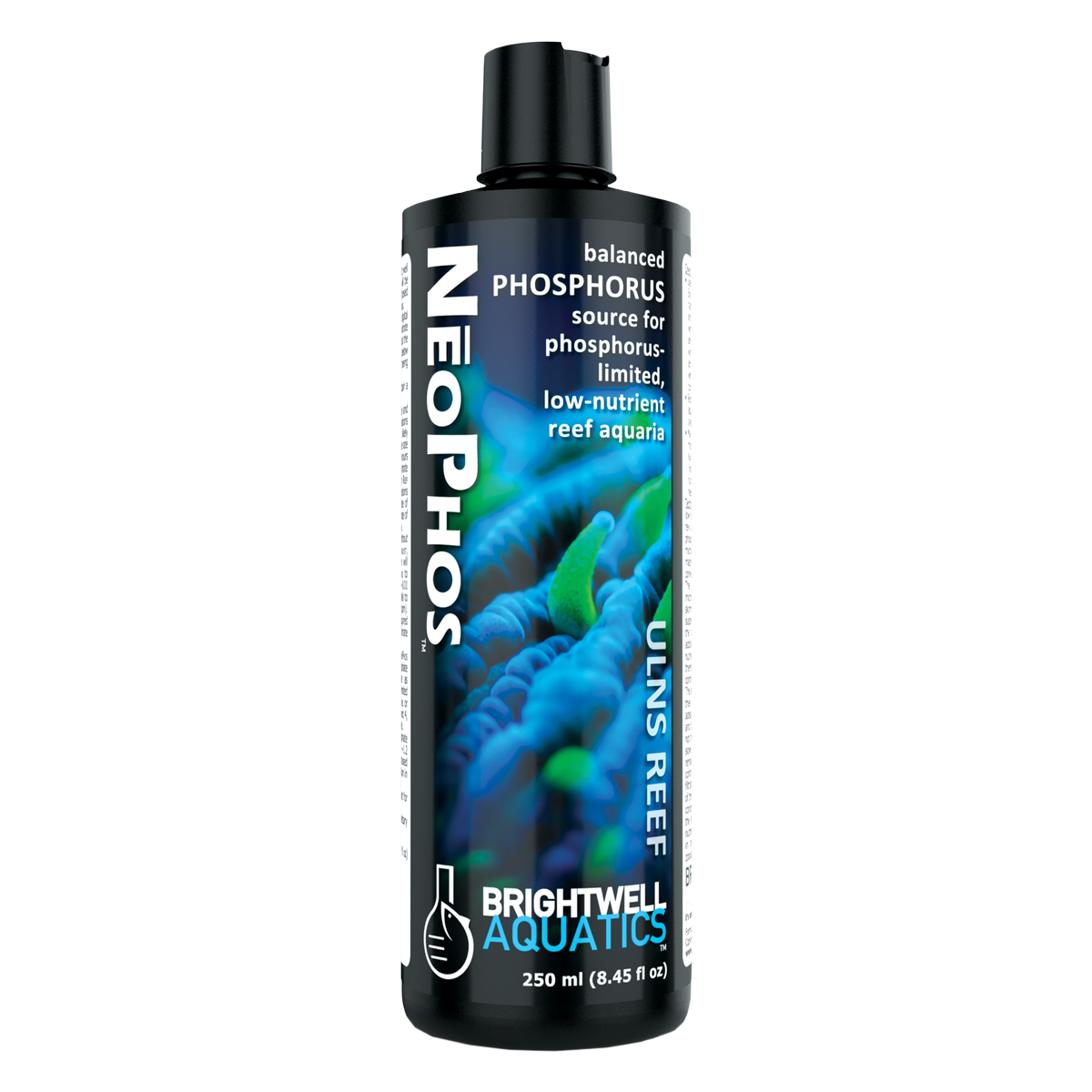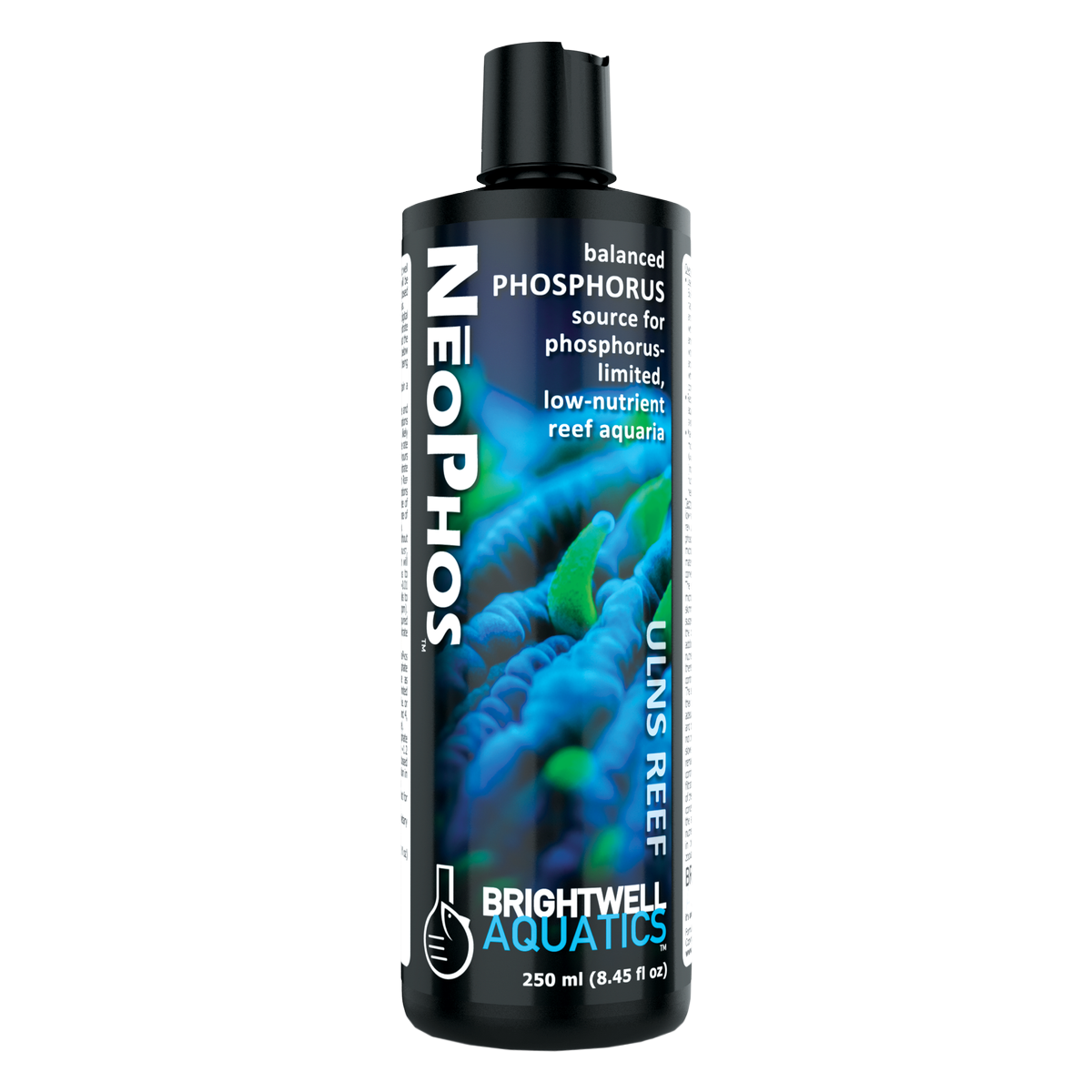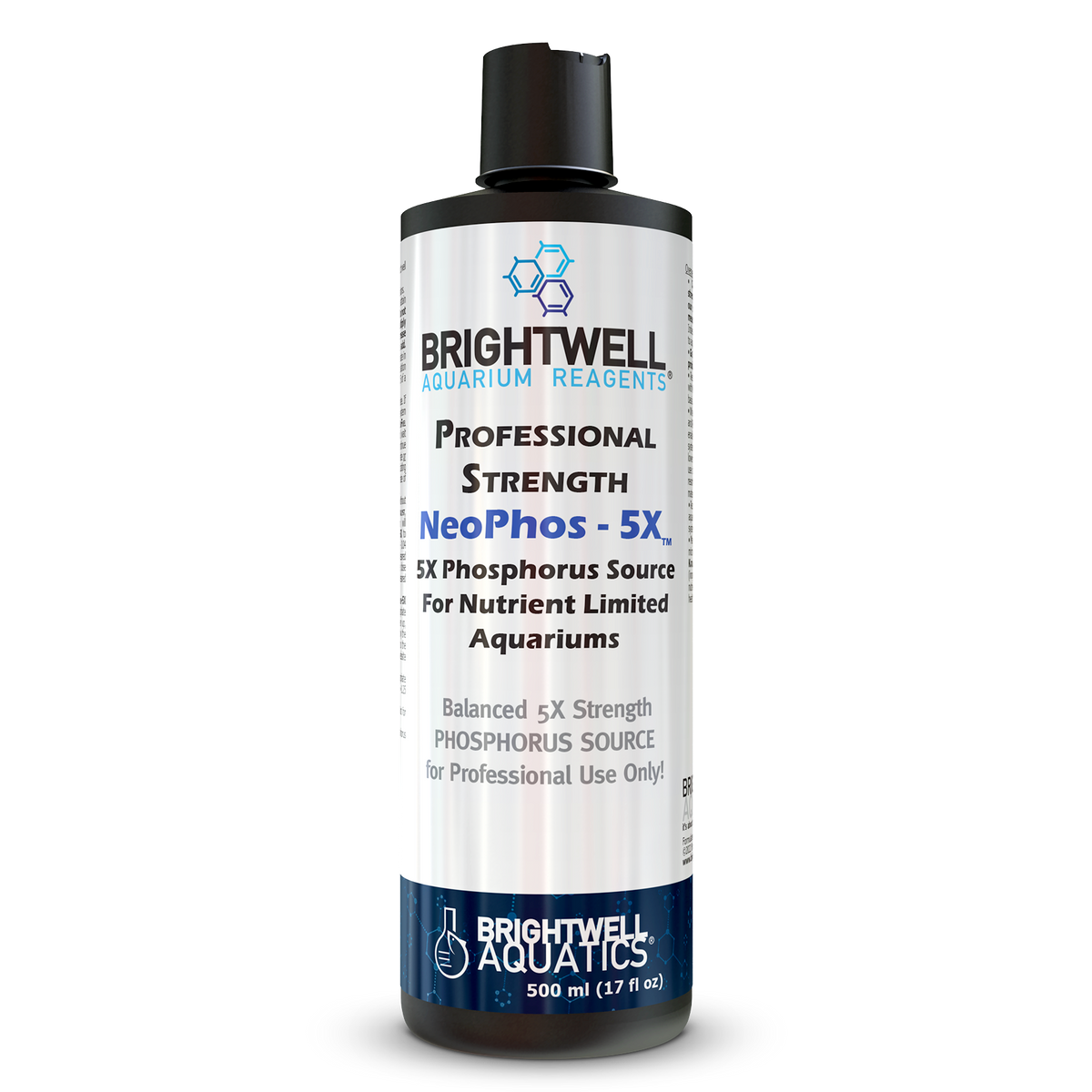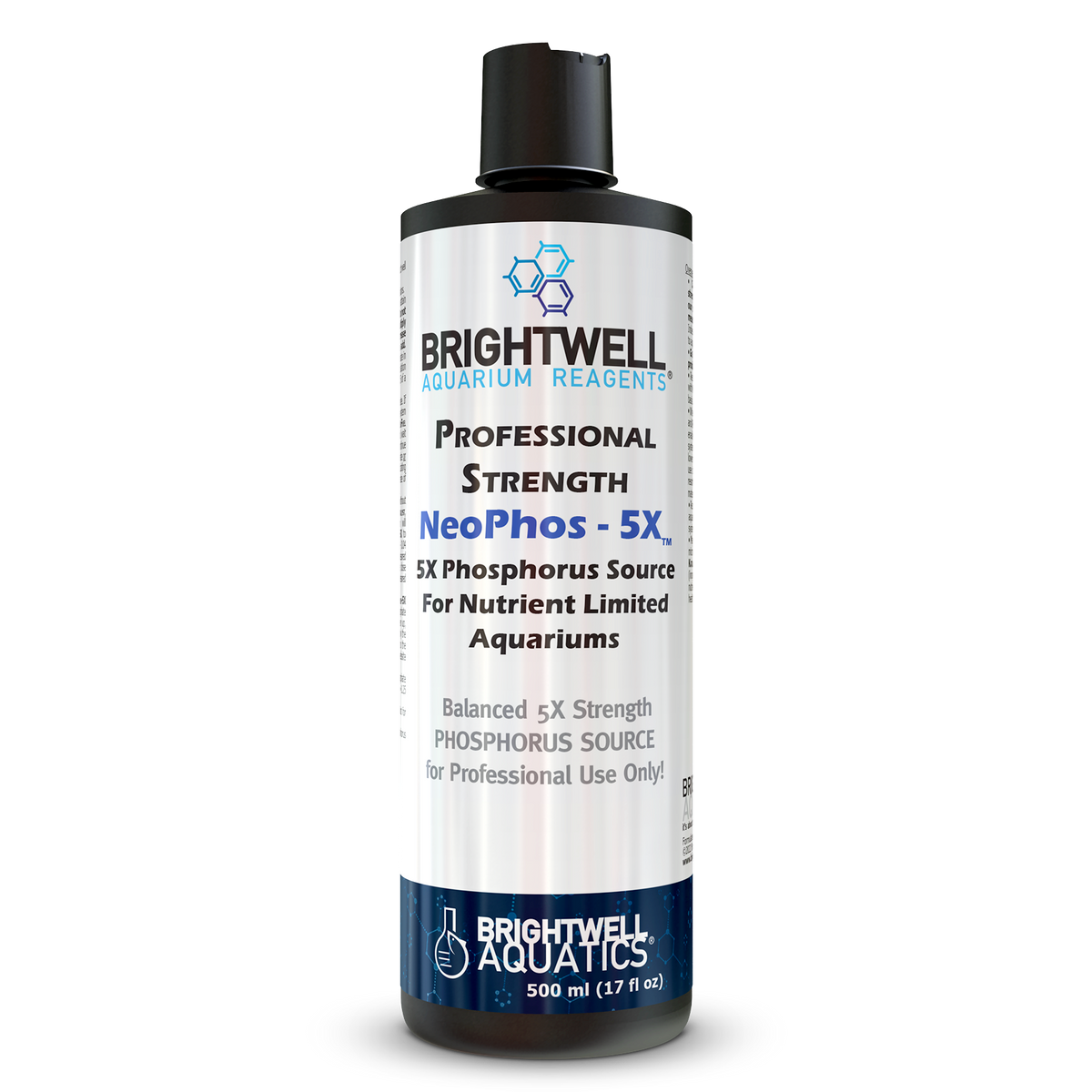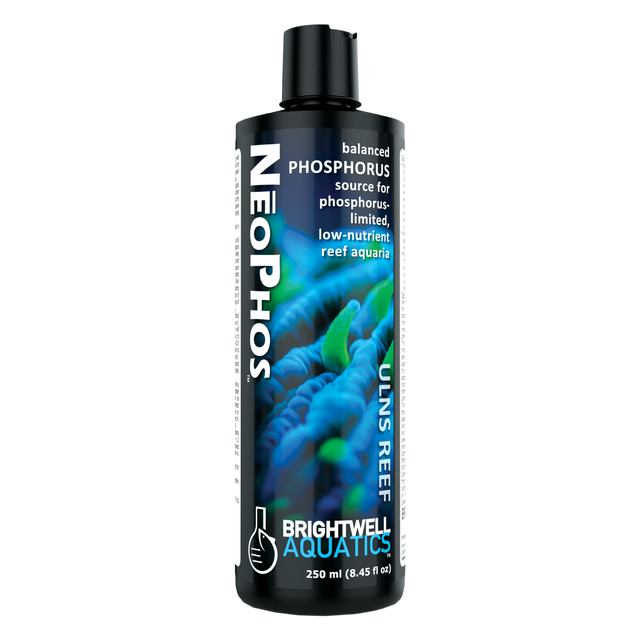NeoPhos
NeoPhos - NeoPhos / 250ml is backordered and will ship as soon as it is back in stock.
Couldn't load pickup availability
NeoPhos - Balanced Phosphorus Supplement
- Used in conjunction with MICROBACTER7 and REEF BIOFUEL or KATALYST, enables
natural nitrogen uptake to take place in systems with inadequate phosphorus content,
lowering ammonia, nitrite, and nitrate concentrations without the use of chemical filtration
media and without resorting to polluting the system with organic material to raise the
phosphorus content. - Recommended for use by advanced reef aquarists maintaining ultra-low nutrient content
systems, only. - May be used with MICROBACTER7, REEF BIOFUEL and/or KATALYST, and NEONITRO
to achieve desired nutrient content in reef aquaria for improved health and coloration of
inhabitants.
Dosing Instructions
Shake product well before using. Do not overdose. Results will be most significant when the system is being dosed with MICROBACTER7 on a daily or bi-daily basis.
1. Using accurate test kits or calibrated digital testing devices, determine phosphate and nitrate concentrations in the system. It is assumed that the phosphate concentration in the system is below detectable limits for the testing method being employed.
2. Apply NEOPHOS as directed below to attain a phosphate concentration of ~0.02 ppm.
3. Allow 24-hours to elapse; re-test nitrate and phosphate concentrations. If concentrations remain unchanged, then the system is likely carbon-limited. Dose with REEF BIOFUEL at the rate of 1-ml per 25 US-gallons and allow 24-hours to elapse, then re-test phosphate and nitrate concentrations. Continue daily dosing with REEF BIOFUEL until phosphate or nitrate concentrations begin to decrease, indicating that the rate of carbon input to the system
matches the rate of phosphorus- or nitrogen-input, respectively.
4. If nitrate concentration decreases without the addition of REEF BIOFUEL or the use of KATALYST, phosphate concentration in the system will decrease. Continue dosing with NEOPHOS to maintain phosphate concentration
of ~0.01 - 0.02 ppm until nitrate concentration falls to within desired range (suggested 3 - 5 ppm). Thereafter, dose with NEOPHOS as required to maintain desired phosphate and nitrate concentrations.
Note: If at any time, dosing with NEOPHOS results in a prolonged increase of phosphate concentration without gradual decrease as nitrate is taken up, the system is likely carbon-limited (remedied by the application of REEF BIOFUEL or KATALYST to the system). Refer to Steps 3 and 4, or to our website (NEOPHOS "Technical" page).
There has been more than one strength of NEOPHOS that has been sold, so please refer to the number of gallons treated on the bottle.
Technical Background
Successfully operated low-nutrient and ultra-low-nutrient reef aquaria rely upon a balance of carbon, nitrogen,
and phosphorus in order to enable beneficial microbes to efficiently remove latent organic material by means of consuming it and converting it into additional microbial biomass. The resulting perpetual supply of planktonic microbes is exported from the system via protein skimming and/or captured by corals and other suspension-feeding invertebrates, recycling the once-latent organic material (waste) into additional biomass of these organisms. These nutrients are also required by zooxanthellae, and therefore by zooxanthellate invertebrates, for continued existence.
The ability of microbes to remove nutrients from their surroundings relies upon the presence of adequate supplies of organic carbon, nitrogen, and phosphorus; if any one of these nutrients is not present in adequate supply, microbial uptake slows or ceases and the concentrations of the remaining nutrients increases as nutrient input continues. The aquarist may employ appropriate filtration material to reduce the concentrations of these nutrients, however bringing the nutrient concentrations into "balance" will accomplish the same task. Failure to maintain adequate nutrient content in any reef system may result in bleaching and/or tissue degradation of zooxanthellate invertebrates.
Payment & Security
Payment methods
Your payment information is processed securely. We do not store credit card details nor have access to your credit card information.

